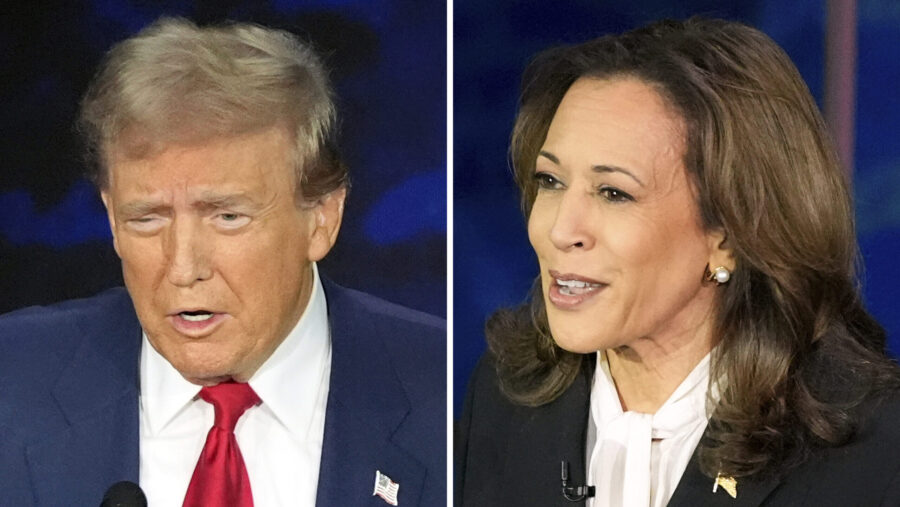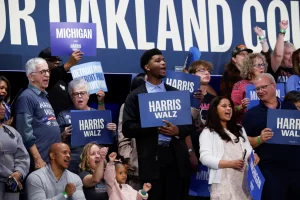Harris and Trump duked it out in Michigan on Friday. Here’s what they said
3 min read

Vice President Kamala Harris and former President Donald Trump faced off in Michigan on Friday, each campaigning vigorously for the state’s crucial 15 Electoral College votes. Their simultaneous appearances in Oakland County, just northwest of Detroit, underscored the importance of this area, which has shifted politically in recent years due to its increasingly educated and diverse population.
Harris, addressing a crowd in Waterford Township, criticized Trump, claiming he is “full of big promises, but always fails to deliver.” She labeled him “one of the biggest losers of manufacturing jobs in American history,” emphasizing her commitment to supporting labor unions and advocating for job opportunities for those without college degrees. This blue-collar message resonated in cities like Grand Rapids and Lansing, where Harris condemned Trump’s manufacturing record and reiterated his lack of support for labor.
Trump, meanwhile, made a stop in Auburn Hills for a roundtable before concluding his day with a rally in Detroit. He pledged to revive American auto manufacturing by imposing steep tariffs on imported vehicles, declaring, “I think it’s more beautiful than love, the word tariff.”
Michigan has been a pivotal state in recent elections, forming part of the “blue wall” that tipped in Trump’s favor in 2016 but swung back to Biden in 2020. The state’s history reflects a fluctuating allegiance, making its voters a key focus for both campaigns.
As early voting progresses—with over 944,000 ballots already cast, representing 13% of Michigan’s registered voters—both Harris and Trump are targeting critical demographics. They aim to connect with union workers, Black voters, suburban moderates, and Arab Americans, particularly in light of tensions surrounding the Biden administration’s response to the Israel-Gaza conflict.

In a notable stop in Hamtramck, a city with a significant Arab American population, Trump addressed concerns about his immigration policies. Mayor Amer Ghalib pressed Trump on allegations that he would deport long-standing residents, to which Trump replied, “Fake news.”
Harris, later in Waterford Township, acknowledged the struggles of the Arab American community, highlighting their significant contributions to the Detroit area. She expressed hope that recent developments could lead to a renewed dialogue for peace in Gaza, asserting, “Sinwar’s death can and must be a turning point.”
Both candidates are aware of the stakes. Harris’s remarks during her union addresses included strong critiques of Trump’s past comments about auto workers, playing video clips where he belittled their contributions. “Listen to his words,” she said, emphasizing the skills and dedication of auto workers and contrasting them with Trump’s dismissive comments.
Trump’s return to Detroit marked a notable moment, as he previously described the city in derogatory terms. In his rally, he painted a picture of hope for the city, promising a “Michigan miracle” if elected. He criticized Democratic leadership, claiming it has hindered Detroit’s recovery.
As the election approaches, the dynamics in Michigan continue to evolve. Both campaigns are intensifying their efforts to sway undecided voters and solidify support among key groups, understanding that the outcome here could be critical for both Harris and Trump.
With Election Day fast approaching, the atmosphere in Michigan is charged, with both candidates seeking to make their case to a diverse electorate that holds significant power in determining the next president.